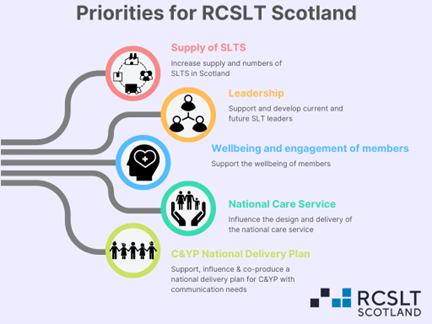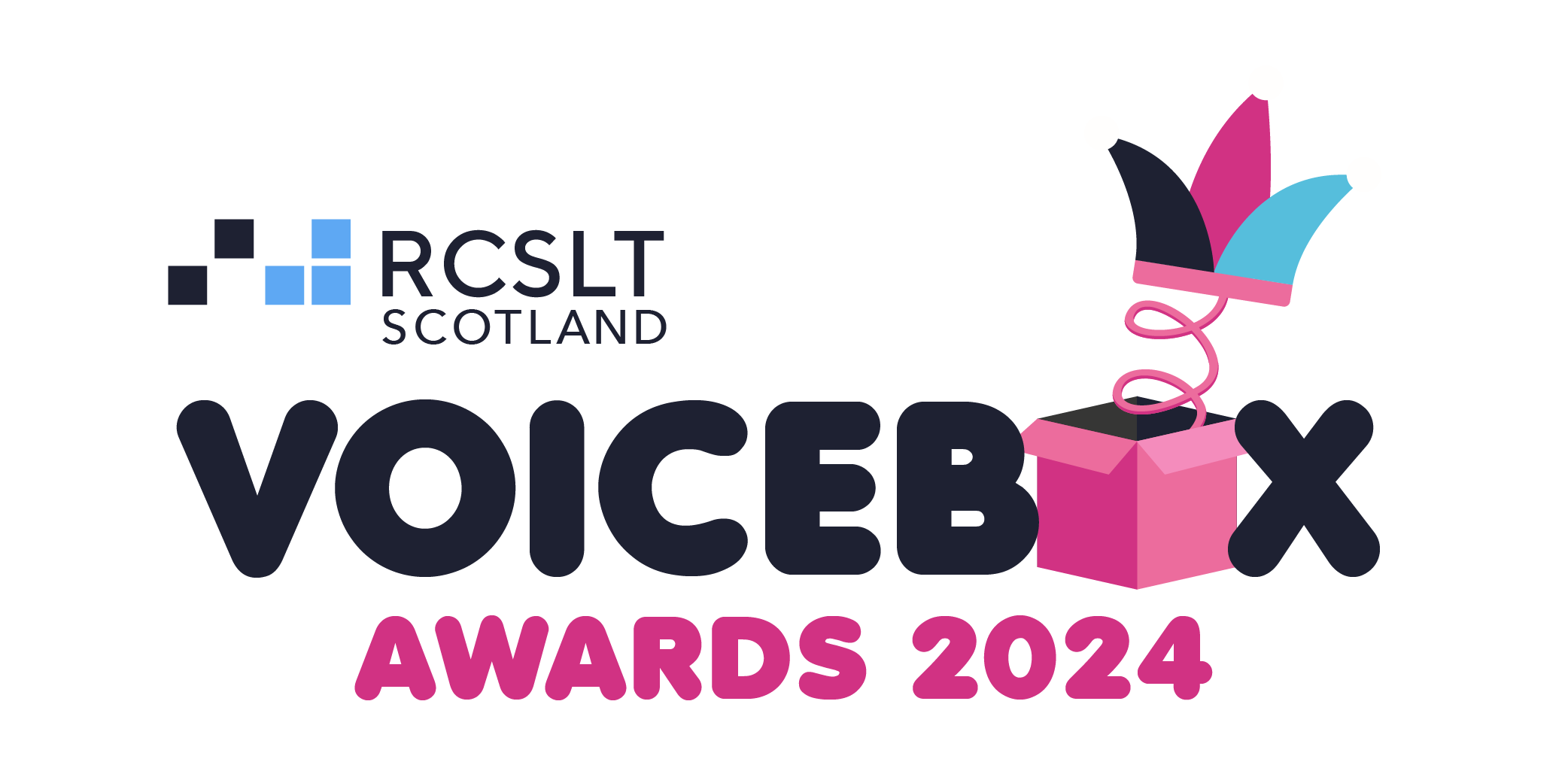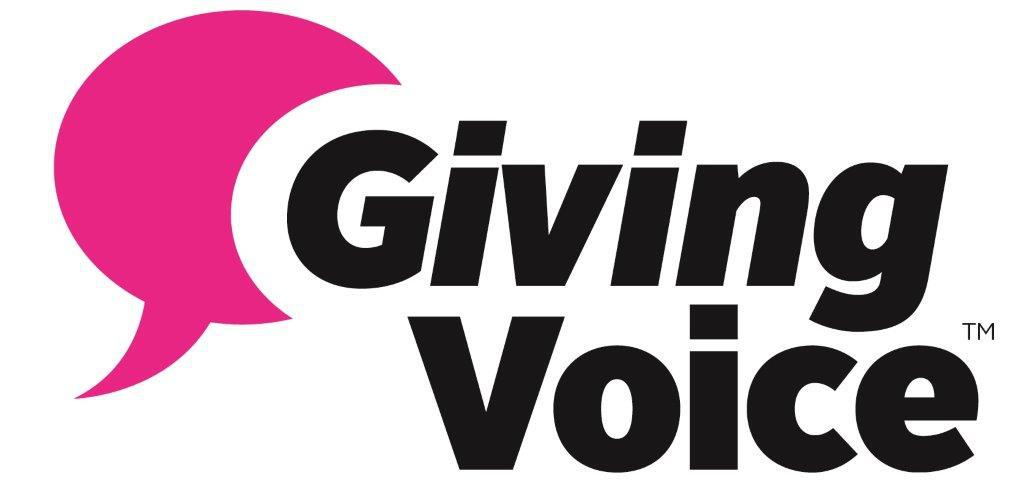
Scotland policy
RCSLT Scotland
Working in partnership with members across Scotland, we aim to maximise representation and promote the profession at every level.
We lead campaigns and influence policy and legislation, building relationships with MSPs, Scottish Government ministers and civil servants.
We support SLTs to advocate for their services locally, providing strategic advice and practical resources.
Our work is led by feedback and input from members.
Key priorities
In consultation with RCSLT members across Scotland, we have set the following priorities for 2022/23:

Head of RCSLT Scotland, Glenn Carter, talks through these priorities:
Campaigns

VoiceBox Awards 2024 is a national joke telling competition for primary school children developed by the RCSLT, designed to raise awareness of the fun and importance of communication. This year’s competition is kindly supported by Collins Big Cat. It will offer schools across Scotland a light-hearted and inclusive way for pupils to develop their communication skills and build their confidence and self-esteem.

Giving Voice aims to ‘give voice’ to people with speech, language and communication needs, to ensure their needs and those of their carers and families, are met. We equip our members to demonstrate locally how speech and language therapy makes a difference to individuals and society, whilst RCSLT officers work to engage decision makers and the media at a national level.

Communication Access UK is an initiative, developed in partnership with charities and organisations, that shares a vision to improve the lives of people with communication difficulties.
Right to Rehab Coalition – RCSLT Scotland is a member of the Right to Rehab Coalition, a collective of health charities and professional bodies who are committed to delivering the Right to Rehab in Scotland. Our aim is to ensure that everyone has access to rehab when needed and people’s needs can be met locally by having the right workforce and professional leadership in place.
Media Stories
- An NHS Lothian SLT helped Pilot lead singer find his voice again after Covid-19 lockdown (External link:The Herald)
- Trans people are turning to speech and language therapy to help them align their voice with their true self (External link: The National)
- Experts call for speech and language therapy to be offered to children caught up in the justice system (External link: The Sunday Post)
- Dunblane pupil who battles development language disorder highlights the importance of DLD Awareness Day (External link: Morrison Media)
Children and Young People
- Response to Inquiry into the Health and Wellbeing of Children and Young People (Health, Social Care and Sport Committee) Dec 2021 (PDF)
Adults
- Response to National Care Service (Scotland) Bill consultation (Health, Social Care and Sport Committee) Sep 2022 (PDF)
- Response to consultation on Cancer Strategy: draft vision, aims and priority areas June 2022 (PDF)
- Response to consultation on Health and Social Care Strategy for Older People June 2022 (PDF)
- Response to A National Conversation to inform a New Dementia Strategy for Scotland Dec 2022 (PDF)
- Response to A National Care Service for Scotland consultation Nov 2021 (PDF)
General
- Response to Learning Disabilities, Autism and Neurodivergence (LDAN) Bill consultation April 2024 (PDF)
- NCS committee consultation response Sept 2022 (PDF)
- Response to Mental Health and Wellbeing Strategy consultation Sept 2022 (PDF)
- Response to public sector duty consultation April 2022 (PDF)
- Response to Inquiry on Health Inequalities (Health, Social Care and sport Committee) March 2022 (PDF)
Who should I influence in Scotland?
External stakeholders in Scotland you can seek to influence include:
- Health Boards
- Local authorities and Councillors – councillors who lead and or sit on relevant scrutiny committees, Chief Executives, Financial Directors and Directors of Education
- Schools
- MSPs
- Health and Social Care Integration Partnerships
- Integration Joint Boards – chief officers
- AHP Directors
- Scottish Attainment Challenge
Resources
- Care Inspectorate (Scotland) The Care Inspectorate regulates and inspects care services in Scotland to make sure that they meet the right standards.
- Heath Care Improvement Scotland Provides clinical standards, guidelines and advice based upon the best available evidence.
- Scottish Intercollegiate Guidelines Network (SIGN) SIGN develops evidence based clinical practice guidelines for the National Health Service (NHS) in Scotland.
- Follow @RCSLTpolicy and @RCSLTscot on Twitter for latest news and updates.
- Email us: scotland@rcslt.org
- Address: 9-10 St Andrew Square, Edinburgh EH2 2AF

